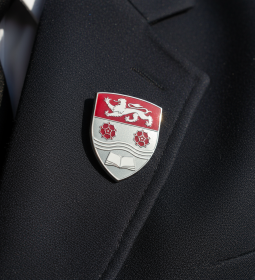A lot of people don't even think about how important time is. Only birthdays and New Year's or Christmas holidays serve as an occasion or reason to think about how we live, and remember that life has squeezed you another year.
Plans are made for the future – we decide where we need to work more to achieve the optimal result, but very quickly forget about our ambitions for the sake of momentary nonsense. A year passes – and we are again ready to sum up the results in the most serious way to build a son, plant a house and cut down a tree.
What is the value of time?
Why value time? This is our most valuable resource, because it is irreplaceable. Most human units have to hurry up to fit their plans into 24 hours, which raises the next question: does the rush make time bigger or less?
A lot of things have to be redone, make repeated decisions, spend money. Take purchases: hurry up, lead to a loud message about the discount - and instead of the microwave you need with a grill and a bunch of interesting functions, buy the same, but in a bright color and without any additional functionality. Or one you don't use. Or you buy a huge TV, which in your apartment simply has no place. Well, if it can be returned. And if not? Time with each extra iteration flows like water through your fingers.
No less common are attempts to hurry up time: many people have the habit of appearing at a meeting earlier, exhausted in anticipation of an event, looking at the clock, wondering when the working day will come to an end. These thoughts tirelessly drill the brain, reducing the amount of necessary resource.

It would be wiser to change your idea of its quantity - and remind yourself of the need to make an important call or view the mail, decide on what exactly is best to spend time on vacation, what attractions to devote time to. This is instead of just waiting and looking at the calendar.
Time is a resource.
You can use it to be offended, whine or complain. And you can develop, spend time with parents or children, enrich your intellect with new knowledge and competencies. You waste time and you get happiness, joy, health or mind in return.
That is why it is critically important to learn how to manage time – to make it an ally and friend, not an opponent. Time management – the use of coordination and plans, motivational measures and control, organizational actions.
How do I manage my time?
Planning contributes to the definition of life mission, the distribution of a number of external and internal factors that allow you to achieve great goals in life. At the heart of everything is planning – this is the first stage. With a lack of attention in this situation, all further actions are doomed to failure.
To organize time means to build its structure and distribute it depending on functions and needs. Coach-coaches advise to use various tools for this. For example, a sign in which you should scrupulously enter all your roles in life: father, spouse, employee of the organization, participant of a volunteer project or hockey team, a friendly team. In the second column, you should enter goals and objectives for each role, and in the third - a schedule with reference to the calendar, which will provide each role with functionality and determine the time frame for achieving success or stating the fact that the efforts did not bring results.

Coordinating time means analyzing a goal in terms of its relevance and mission relevance. The situation may change under the influence of external factors, which sets the task of timely response to changes in the agenda.
To motivate for the effectiveness of time means to determine the necessary types of reward and stimulation to continue intensive action towards the goal. According to Adam Smith, the main motivation is money, but non-economic incentives such as a free schedule, career growth and a good team can be no less effective.
To control time means to set boundaries and measure the time and effort spent, to search for and optimize time expenditures, fixing intermediate results, which will give a charge "not to stop there" and go forward.
Why are some people happy and rich and others not?
As you can see, it's all about using your own time. Successful and prosperous tend to soberly assess the cost of time: they are aware that the wasted time can no longer be returned, because they spend it with benefit and invest in their favorite activities, or are profitable enough to free up time for those who are useful and loved. The rich tend to buy other people's time, and not to spend their own.
The last advice is from the author. Learn to appreciate time – it will end, today or tomorrow. Every second is important and worth a lot. Time is the best investment. Your actions today determine your tomorrow – think about it.









